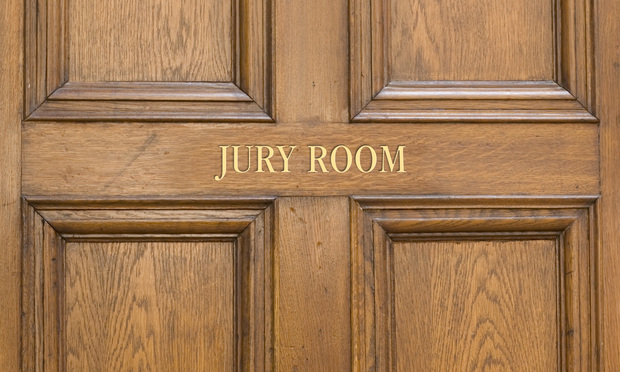People v. Kuzdzal
NY Slip Op 03304
Decided on May 8, 2018
Contact us to speak with an experienced criminal appeals attorney.
Issue:
Did Trial Court Abuse its Discretion in Foregoing a Buford Inquiry?
Whether 1) the trial court abused its discretion in choosing not to conduct a Buford inquiry of two jurors when the source of the allegations, after testimony, was found incredible and 2) whether the Appellate Division erred in determining a Buford inquiry should have been conducted.
Holding:
Trial Court Did Not Abuse its Discretion, but the Appellate Division Did
The Court of Appeals held that 1) the trial court did not abuse its discretion to forego a Buford inquiry after finding the source of the allegations incredible and 2) the Appellate Division erred when it did not review whether the trial judge was justified in finding the spectator incredible based on the weight of the evidence.
Facts:
Defendant was convicted upon a jury verdict of murder in the second degree and predatory sexual assault against a child. During trial, a courtroom spectator alleged that she overheard two female jurors outside the courthouse call the defendant a “scumbag.” The spectator also claimed that the women were in the back row laughing and making faces during the trial. The court immediately directed the spectator to take the witness stand and, during her sworn testimony, she said she had overheard the women during a 15-minute recess in the morning. When told there was no 15-minute break in the morning, the spectator changed her testimony and said the conversation happened around noon. The spectator also explained that she was ejected from the courthouse for “saying something in the hallway,” and defense counsel had identified the woman as the defendant’s girlfriend. The spectator denied being his girlfriend, but confirmed she was his lifelong friend.
Defense counsel asked the court to perform a Buford inquiry into the two jurors while the prosecution argued that the spectator’s testimony did not meet the standard to trigger such an inquiry. The trial court judge concluded that an inquiry was not necessary or appropriate “based on what I heard.” The Appellate Division opined that the trial court made no findings, express or implied, as to the spectator’s credibility, and held that “the jurors’ alleged reference to defendant as a ‘scumbag’ indicated the possibility of juror bias, and thus…the court should have granted defendant’s request to make an inquiry of the jurors.” The People appealed.
Analysis:
Buford Procedure for Discharging a Juror
CPL 270.35 governs the procedure for discharge of a sworn juror, stating that “if at any time after the trial jury has been sworn and before the rendition of its verdict…the court finds, from facts unknown at the time of the selection of the jury, that a juror is grossly unqualified to serve in the case or has engaged in misconduct of a substantial nature…the court must discharge such juror.”
With People v Buford (69 NY2d 290 [1987]), the Court mandated that the standard for discharging a juror is satisfied only “when it becomes obvious that a particular juror possesses a state of mind which would prevent the rendering of an impartial verdict” (Buford, 69 NY2d at 298). The Court has expressly held that a “trial judge generally is accorded latitude in making the findings necessary to determine whether a juror is grossly unqualified under CPL 270.35, because that judge is in the best position to assess partiality in an allegedly biased juror” (People v Spencer, 29 NY3d 302, 310 [2017], quoting People v Rodriguez ).
A trial court’s “investigation of juror misconduct or bias is a delicate and complex task” (United States v Peterson, 385 F3d 127, 134 [2d Cir 2004]), and courts must have broad flexibility in matters involving the jury. Indeed, “in determining whether a hearing must be held, the court must consider the content of the allegations, the seriousness of the alleged misconduct or bias, and the credibility of the source” (United States v Angulo, 4 F3d 843, 847 [9th Cir 1993]).
Here, the allegation of juror misconduct came from a courtroom spectator and defendant’s lifelong friend. When presented with the allegation, the trial court chose to question the source of the allegation to ascertain its reliability, rather than to questioning the jurors and possibly intruding on the sanctity of the jury. Trial court judges may, in exercising their discretion, fashion an appropriate procedure to determine whether a Buford inquiry is required under the facts. Thus, the procedure followed by the trial court in this case was not an abuse of discretion as a matter of law.
Appellate Division’s Review
Under the system of appellate review, every litigant is afforded at least one review of the facts (People v Bleakley, 69 NY2d 490, 494 [1987]). As the Appellate Division in this case did not consider the threshold issue—whether the Trial Judge was justified in finding the spectator incredible and foregoing a Buford inquiry—the Court of Appeals remitted the case to that court to consider whether the trial court’s finding was supported by the weight of the evidence. If upon factual review, the Appellate Division finds that the record supports the trial court’s determination that the spectator lacked credibility, no further action is required. If the credibility determination is not supported, the Appellate Division must determine whether the court abused its discretion in not taking further action. A credible allegation that a juror is grossly unqualified within the meaning of CPL 270.35 cannot be ignored by the trial court, and failure to appropriately remedy the matter is a reversible error.
Thus, the order of the Appellate Division was reversed and the case was remitted for consideration of the facts.
